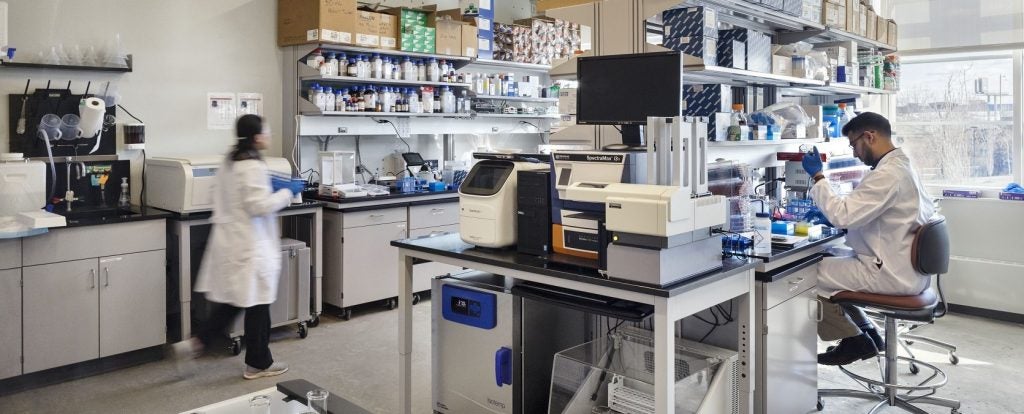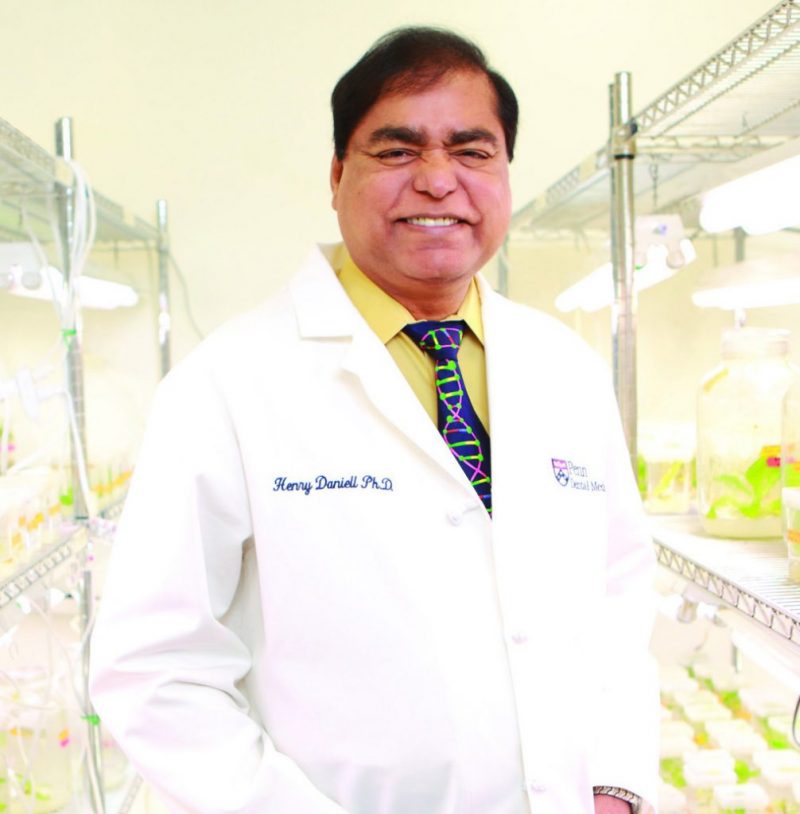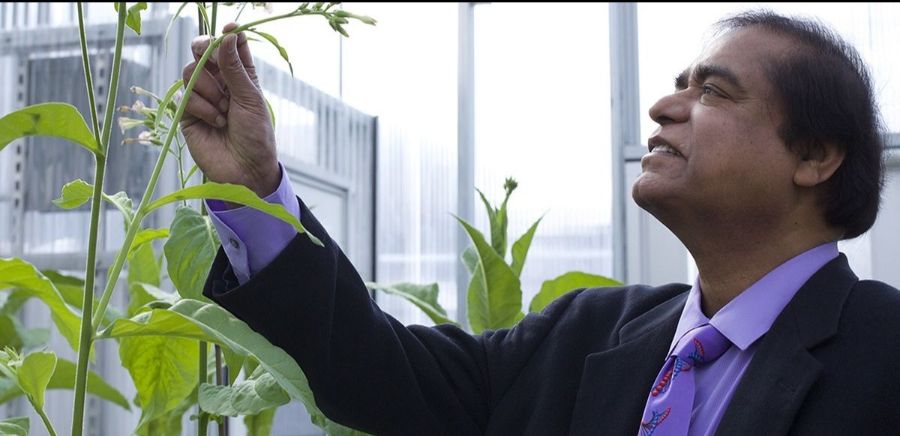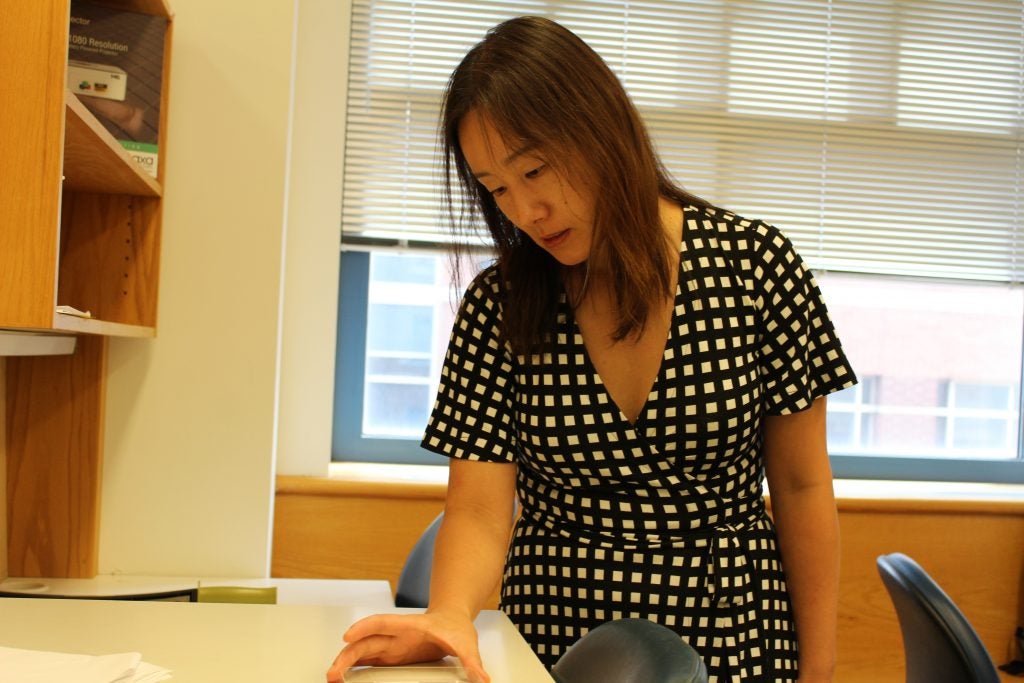Private sector partnering and commercialization of technologies enabled by innovators across the University are making vital contributions to a growing number of COVID-19 diagnostics, therapeutics, vaccines, clinical interventions and technical solutions. Breakthroughs made by Penn faculty members are core components of numerous high-profile product candidates, including multiple leading vaccine candidates for COVID-19. In rapid response to the global crisis, Penn faculty, clinicians and R&D teams rapidly adapted their research priorities to focus on new technologies and solutions to help mitigate the impacts of the current pandemic.

Plant-derived encapsulated protein drugs for lower-cost prevention and treatment of lung injury in COVID-19 patients
COVID-19 is associated with high rates of respiratory failure, cardiac injury, and death in some severely affected patients who present with reduced expression of angiotensin converting enzyme 2 (ACE2) and depletion of ACE2’s protein product, the anti-inflammatory peptide Angiotensin-(1-7).

Henry Daniell, Ph.D., Vice Chair and W.D. Miller Professor in the Penn School of Dental Medicine, and his colleagues, developed a platform for producing recombinant ACE2 and Angiotensin-(1-7) in lettuce plants that is shelf-stable at room temperature over extended storage and transportation timelines. Preclinical studies in animal models of pulmonary hypertension showed that orally delivered ACE2 made in plant cells accumulated ten times higher in animal lungs than in the blood, and treated pulmonary hypertension at escalating doses without any observed toxic effects.

Dr. Daniell was recently awarded more than $800,000 in funding from Pennsylvania’s COVID-19 Vaccines, Treatments and Therapies (CV-VTT) program to support further clinical development of these plant produced therapeutic and vaccine technologies. Discussions with commercial manufacturers are underway to ensure a robust supply chain in place for the upcoming clinical studies.
Penn Dental Medicine among Wolf Administration Awardees to Battle COVID-19A new diagnostic platform for rapid and ultrasensitive COVID-19 screening in community settings
Currently available COVID-19 diagnostics often require long turnaround times between patient sampling and test results, and too many suffer from a high frequency of false negative outputs. Many tests also require patients to travel to collection sites, where the risk of transmission may be increased. More timely, accurate, and accessible testing is critically needed to effectively monitor groups, contract trace suspected outbreaks and quarantine infected individuals to help limit disease transmission.

Ping Wang, Ph.D., Associate Professor and Director of the Clinical Chemistry Section and Core Laboratory at the Perelman School of Medicine, has developed an exciting new portable diagnostic test that accepts both nasopharyngeal and saliva samples to provide rapid and sensitive detection of SARS-CoV-2, the causative virus behind COVID-19 infections. The test has a 15-minute turnaround time and with high sensitivity (~95%) and specificity (~99%), thus making it faster, and more resistant to false negatives as compared with most other current diagnostic tests. The novel testing platform developed by Dr. Wang and her laboratory is not limited to the detection of SARS-CoV-2 but can also be easily adapted to aid in the identification and diagnosis of other infectious diseases.